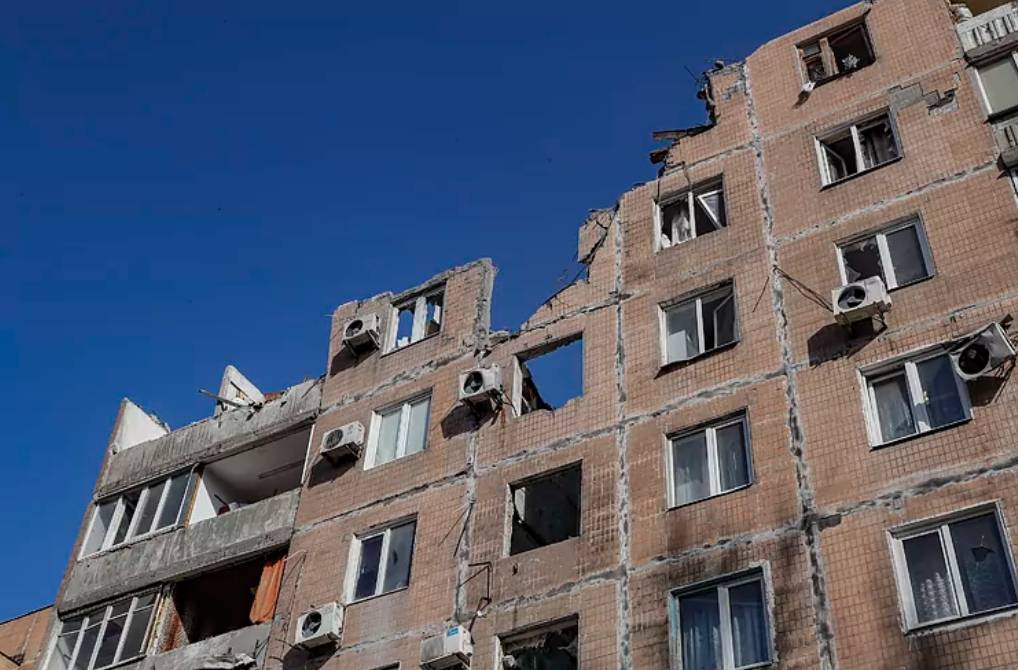
Austrian Chancellor Nehammer met with Putin in Moscow hoping to mediate the war, an appointment that the former described as “open and tough”
Russia’s “special military operation” in Ukraine is being waged in part to end the “total dominance” and “reckless expansion” of the United States on the international stage, the Russian foreign minister explained. Sergei Lavrov thus provided a new justification for a conflict that began in February under the pretext of “denazifying” and “disarming” Ukraine, according to Russian President Vladimir Putin, who seems to have abandoned the initial idea of changing the government in kyiv. .
“Our special military operation is designed to put an end to the reckless expansion and reckless drive towards total dominance by the United States, and the rest of the Western countries under its leadership, in the international arena,” Lavrov said in an interview with the state broadcaster Rossia-24. The Russian media daily give another version to the viewers: attacking Ukraine is necessary to rid the population of Donbas from genocide.
Moscow is a source of reasons: from the Ministry of Defense its spokesman, Igor Konashenkov, has justified the bombings based on the existence of supposed biological laboratories with dangerous birds. Last week, the Foreign Ministry spokeswoman, Maria Zajarova, put the icing on the Russian justifications, arguing that the Ukrainians had a Nazi attitude by not allowing other nations to cook borsch, a typical Ukrainian beet soup. “It is not that they have gone mad, they deliberately offer all possible reasons for their different audiences and at the same time distort any discussion,” explained analyst Serguei Sumlenny, former director of the Heinrich Boell Foundation in kyiv.
Lavrov was also tough on Brussels, warning that calls by EU chief diplomat Josep Borrell for the bloc to continue arming kyiv represent a “very serious U-turn” in European politics.
THE AUSTRIAN CHANCELLOR MEETS PUTIN
The EU is preparing new sanctions but does not lose hope of an agreement. Austrian Chancellor Karl Nehammer met with Putin in Moscow. It is the Russian president’s first face-to-face meeting with an EU leader since Russian troops entered Ukraine on February 24.
They were tough talks, Nehammer said after leaving the meeting “with no positive expectations.” The Austrian leader went to Moscow despite criticism in his own country hoping to help end the war or at least improve conditions for civilians: “The conversation with President Putin was very direct, open and tough. “. Kremlin spokesman Dimitri Peskov said Putin’s conversation with the Austrian chancellor was brief by recent standards.
The Russian president has been largely shunned by Western leaders since the start of the conflict. But Putin is not a plague on the international level. He maintains the tacit or explicit support of countries such as China and India and met with Israeli Prime Minister Naftali Bennett in the Kremlin in early March as Russian soldiers made their way towards kyiv.
Nehammer came to Moscow hoping to “build bridges” between Russia and Ukraine. The priorities: agree on more humanitarian corridors, a ceasefire and a full investigation of war crimes.
While Europe fears a war conflict closer to the community borders, Vienna is also a dialogue partner out of necessity. The Austrian government supports the sanctions imposed so far but, like Germany and Hungary, opposes rejecting Russian gas. Its economy is heavily dependent on Putin’s hydrocarbons: it gets 80% of its natural gas from Russia. He generally maintains a softer tone with Moscow than other European Union countries, though he has toughened language recently. Militarily Austria is neutral, but has denounced “Russian aggression”. Striking a precarious balance, Nehammer has not wanted to send weapons to Ukraine, but says he refuses to be “morally neutral” in this conflict. He visited kyiv on Saturday the 9th, where he met with the Ukrainian president, Volodimir Zelensky.
In the morning the German chancellor supported the attempt of his Austrian counterpart with Putin. Olaf Scholz, also a good client of Russian gas, said that he supports any diplomatic effort to end the conflict.
Moscow is willing to talk but eager to fight as it prepares a new offensive in eastern Ukraine. Lavrov confirmed that the negotiations will continue, but that Russia will not stop its attacks. He also denied that Russia is committing war crimes, calling the mass graves “a staged performance.” The Russian foreign minister also accused the United States of not abiding by international law. “In Iraq they saw a threat to their American security, they bombed it. And when neo-Nazis and ultras increase right on our borders we are not allowed to react to this threat in our neighborhood,” Lavrov lamented.
